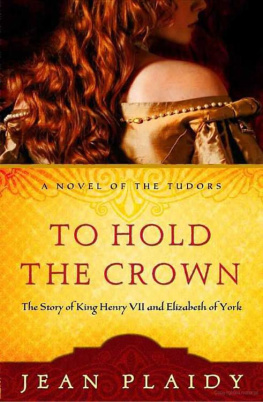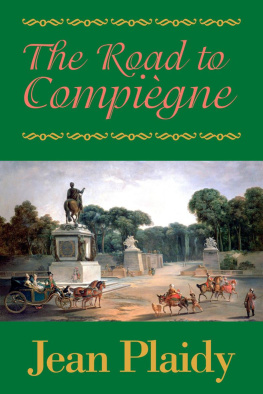Jean Plaidy - The Third George
Here you can read online Jean Plaidy - The Third George full text of the book (entire story) in english for free. Download pdf and epub, get meaning, cover and reviews about this ebook. genre: Romance novel. Description of the work, (preface) as well as reviews are available. Best literature library LitArk.com created for fans of good reading and offers a wide selection of genres:
Romance novel
Science fiction
Adventure
Detective
Science
History
Home and family
Prose
Art
Politics
Computer
Non-fiction
Religion
Business
Children
Humor
Choose a favorite category and find really read worthwhile books. Enjoy immersion in the world of imagination, feel the emotions of the characters or learn something new for yourself, make an fascinating discovery.

- Book:The Third George
- Author:
- Genre:
- Rating:3 / 5
- Favourites:Add to favourites
- Your mark:
- 60
- 1
- 2
- 3
- 4
- 5
The Third George: summary, description and annotation
We offer to read an annotation, description, summary or preface (depends on what the author of the book "The Third George" wrote himself). If you haven't found the necessary information about the book — write in the comments, we will try to find it.
The Third George — read online for free the complete book (whole text) full work
Below is the text of the book, divided by pages. System saving the place of the last page read, allows you to conveniently read the book "The Third George" online for free, without having to search again every time where you left off. Put a bookmark, and you can go to the page where you finished reading at any time.
Font size:
Interval:
Bookmark:
Jean Plaidy
The Third George
Princess Charlotte - The fateful letter
One day in the year 1760, when she was sixteen years old, the Princess Charlotte Sophia of Mecklenburg-Strelitz wrote a letter which many believed set in motion those events which lifted her from a little German principality, where she would doubtless have spent her days in obscurity, to the throne of England.
Charlotte had been out driving in the company of her elder sister, the Princess Christina. Once a week on Sundays they took their places in the coach drawn by six horses and drove through the countryside with as much state as they were ever allowed, which merely meant that they were escorted by guards. They were dressed in their best gowns, which they were only permitted to wear on Sundays, and they had been warned constantly by their mother, the Dowager Grand Duchess, as well as their governess, the admirable Madame de Grabow, that they must be careful not to soil them as there was no money available to buy more.
Both Princesses were made aware of their poverty, being obliged to mend their own garments and darn their stockings for as long as there was any possibility of continuing to wear them; and as the Grand Duchess and Madame de Grabow believed in discipline and that it was always necessary to have a piece of work in the hands, they must perform these tasks themselves.
Their poverty had increased since the war, which had been going on now for four years, and it was the effects of this war of which she was made deeply aware on that particular Sunday afternoon, which made Charlotte act in such an unprecedented manner.
The coach pulled up suddenly to avoid a woman who had stepped right in its path and Charlotte saw her quite distinctly as she shook her fist at the coachman.
"You'd run us down," cried the woman. "We're of no account. You take our men for the wars and our money for the taxes ... so what matter if you run us down!
Charlotte noticed that her eyes seemed as though they were sunk deep in her head and that her flesh showed through her torn dress.
She had seen the Princesses in their Sunday gowns and she came to the window of the coach and went on: "That was our farm." She pointed vaguely.
"Who's going to till the land now, eh? They've taken my man. They've taken my sons. And the Prussians come marching through.
The guards were about to arrest her, but Charlotte cried: "No. Drive on! Drive on." And she and her sister were thrown back against the upholstery of the coach as it jerked into action.
Charlotte was looking out of the window watching the woman.
"It was... terrible," she said.
"Did you see her face, Christina?
Christina shook her head.
"It was so... tragic," burst out Charlotte.
"You heard what she said. This war ...this fearful war! What good is it doing the country? We're all poor because of it. Not that that is important. They'd taken that woman's husband and son. You heard what she said.
"You are too vehement, Charlotte.
"What else can one be ... when that is happening?
Charlotte stared gloomily out of the window while Christina quickly dismissed the incident and continued to smile at her own thoughts. It was no use trying to interest Christina in anything since the Duke of Roxburgh had come to Mecklenburg.
So Charlotte gave up the attempt. Perhaps if she had talked to her she would not have felt compelled to give vent to her indignation on paper. She could have expressed it to Christina, could have discussed with her what they could do about it. But Christina was too absorbed in her own delicious thoughts.
The effects of this terrible war are everywhere, thought Charlotte. Yet never had they seemed so obvious as they did on this afternoon. When she had looked into that woman's face she had seen something which she would never forget a reproach, an appeal. She must do something.
It was not easy when one was sixteen. Her mother would tell her that the war was no affair of hers; and Madame de Grabow would agree with her mother. As for her brother, the ruler of Strelitz, he never had time for her, so she would soon be sent back to the schoolroom if she attempted to talk to him. Her friend and companion Ida von Billow was too frivolous. She would agree she always agreed but she would sigh and say "Yes, Princess, but what can we do about it?
"There must be something I can do," she said aloud.
"What?" asked Christina idly.
Charlotte did not answer, and Christina did not notice that she had not.
So Charlotte gave herself up to studying the countryside and was appalled afresh by the effects the war had had on it.
She saw the people inadequately clad, inadequately fed; she saw villages through which the soldiers had passed, and plundered as they went. They had even desecrated the churches and in doing so robbed them of some of the sacred ornaments. And these were the Germans, their own people the Prussians, the most brilliant makers of war in the world.
When the coach arrived back at the castle Charlotte was in a militant mood.
The castle, like the villages through which they had pasted, was in a state of crumbling decay.
There was a rampart, but the tower was almost in ruins and the old grenadier who was supposed to guard the drawbridge had laid his musket down beside him so that he could get on with knitting a stocking.
He looked up and nodded a greeting as the coach raided over the bridge and into the courtyard.
Charlotte, to whom the schloss had been home ever since her brother had inherited the ducal crown eight years ago, noticed for the first time how shabby it was. Only the glass lamps over the gateway and the two cranes set there like guards reminded one that this was the ducal residence.
We are all poor, thought Charlotte, and it is all due to this terrible war.
Never before this afternoon had the war seemed so terrible. She had followed its progress on the maps her governess Madame de Grabow had made for Madame de Grabow was an expert map- maker and had a passion for geography which she had imparted to Charlotte. She knew that the war was due to the desires of Frederick of Prussia to dominate Europe and of Maria Theresa of Austria to take back from Frederick the province of Silesia. On Maria Theresa's side were France, Russia and Poland, while the English had promised assistance to Frederick. There were strong family ties between the English and the Germans and Madame de Grabow was constantly referring to the island off the coast of Europe which was becoming increasingly powerful and was even at this time at war with the French over their colonies.
And these ambitious rulers, thought Charlotte, were seeking their victories at the expense of the people of such poor little dukedoms as Mecklenburg-Strelitz.
She glanced at Christina. One must not be hard on Christina who after all was twenty-six years old and in love. One could not mix love and war and Charlotte supposed the first was a more inviting subject for thought than the second.
Charlotte had no reason to think of love, so she gave herself up to the contemplation of war and continued to ask herself what she could do about it.
There was one man who could stop this wicked waste, this pillage; who could by the stroke of pen and one word of command prevent his soldiers from laying waste villages, robbing churches and plundering the houses which stood on their routes. This was Frederick of Prussia, whom they called Frederick the Great.
But he would never listen to a sixteen-year-old girl. If she wrote to him her letter would never reach him. He would say she was a silly young creature. What if he complained to her brother?
Then there would be trouble.
Yet, thought Charlotte, if I did nothing I should never be able to forget that woman's face. Perhaps she was put in my path today for a purpose.
Font size:
Interval:
Bookmark:
Similar books «The Third George»
Look at similar books to The Third George. We have selected literature similar in name and meaning in the hope of providing readers with more options to find new, interesting, not yet read works.
Discussion, reviews of the book The Third George and just readers' own opinions. Leave your comments, write what you think about the work, its meaning or the main characters. Specify what exactly you liked and what you didn't like, and why you think so.



